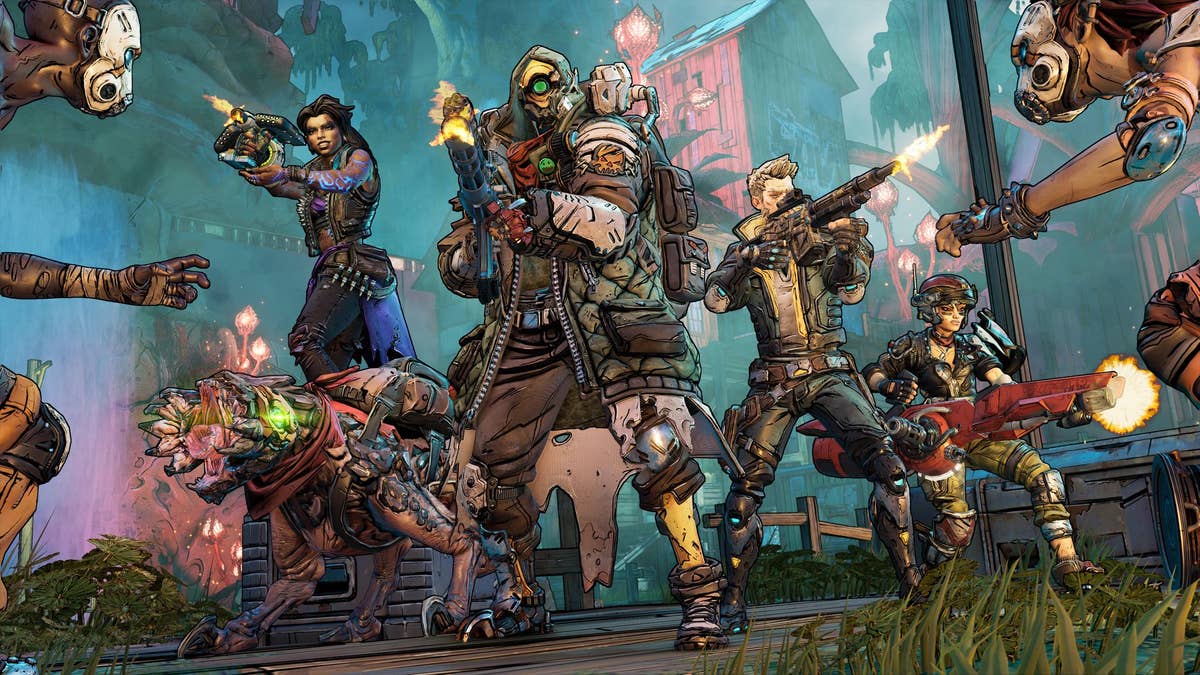20Shift: Your Daily Dose of Insight
Stay updated with the latest trends and news across various domains.
Co-Op Games That Turn Friends into Frenemies
Discover co-op games that test friendships and spark rivalry. Turn your pals into frenemies—let the games begin!
Top 10 Co-Op Games That Fuel Friendly Rivalries
If you're looking to fuel some friendly rivalries with your friends or family, co-op games can be a fantastic way to blend teamwork and competition. Here are the top 10 co-op games that fuel friendly rivalries:
- Overcooked! 2 - This chaotic cooking game requires players to work together under pressure, leading to hilarious mishaps and competitive banter.
- A Way Out - A narrative-driven adventure that mandates teamwork to escape prison, its twists can bring out the competitive spirit in players.
- Cuphead - This beautifully drawn platformer demands precision and cooperation, and losing a level can lead to friendly rivalry!
- Borderlands 3 - With its loot-driven gameplay, players often find themselves in heated races to secure the best gear.
- Minecraft - A sandbox with limitless possibilities that can easily become a competitive building contest.
Continuing with our list of the top 10 co-op games that fuel friendly rivalries, let's dive into more thrilling titles:
- Rocket League - This fast-paced blend of soccer and vehicular mayhem promises exhilarating matches, where bragging rights are on the line.
- Keep Talking and Nobody Explodes - A unique game where one player defuses a bomb with instructions from others, leading to spirited debates on communication.
- Gang Beasts - This silly brawler features jelly-like characters fighting in outrageous settings, naturally fostering a competitive atmosphere.
- Phasmophobia - Join forces to investigate haunted locations, but watching your friends face their fears can spark some playful teasing.
- Stardew Valley - While mostly peaceful, competing to create the best farm can ignite fierce rivalries among players.

Are Co-Op Games Really Destroying Friendships?
As gaming continues to evolve, co-op games have become a popular way for friends to bond over shared challenges and adventures. However, the question arises: are these games truly destroying friendships? While many players enjoy the cooperative experience, there are instances where competition for resources or differing play styles can lead to conflict. According to a study by Psychology Today, the pressure to perform and win can create significant stress, potentially straining friendships.
On the flip side, many gamers argue that co-op games can actually strengthen relationships by promoting teamwork and communication. Friends often develop deeper connections as they strategize and work together to overcome difficult challenges. A report from Gamasutra highlights how collaborative play fosters a sense of belonging and mutual support among players. Ultimately, the impact of co-op games on friendships depends on the players involved; healthy communication and friendly competition can lead to stronger bonds, while toxicity in gameplay may prove detrimental.
The Psychology Behind Co-Op Games That Turn Friends into Frenemies
Co-op games are designed to foster teamwork and collaboration, yet they often reveal a darker side to friend dynamics. This phenomenon can be attributed to the psychology behind competition and the social interactions that arise during gameplay. Players are frequently put in high-pressure situations where they must rely on each other to succeed. This shared burden can lead to feelings of frustration and rivalry, particularly when one player feels they are pulling more weight than others. The result? A mix of camaraderie and competition that can quickly turn friends into frenemies. As explained in this Frontiers in Psychology article, game mechanics that incentivize players to perform better than their teammates can exacerbate these feelings.
The social dynamics of co-op gaming often reflect the complexities of real-world relationships. According to studies highlighted in ScienceDirect, players may experience emotional highs and lows as they navigate victories and defeats alongside friends. Arguments over strategic decisions, perceived betrayals, or unbalanced contributions can lead to resentment and conflict, thereby transforming friendships into competitive rivalries. Ultimately, while co-op games are meant to strengthen bonds, the psychology of gaming reveals that they can also introduce elements of competition that threaten those very connections.